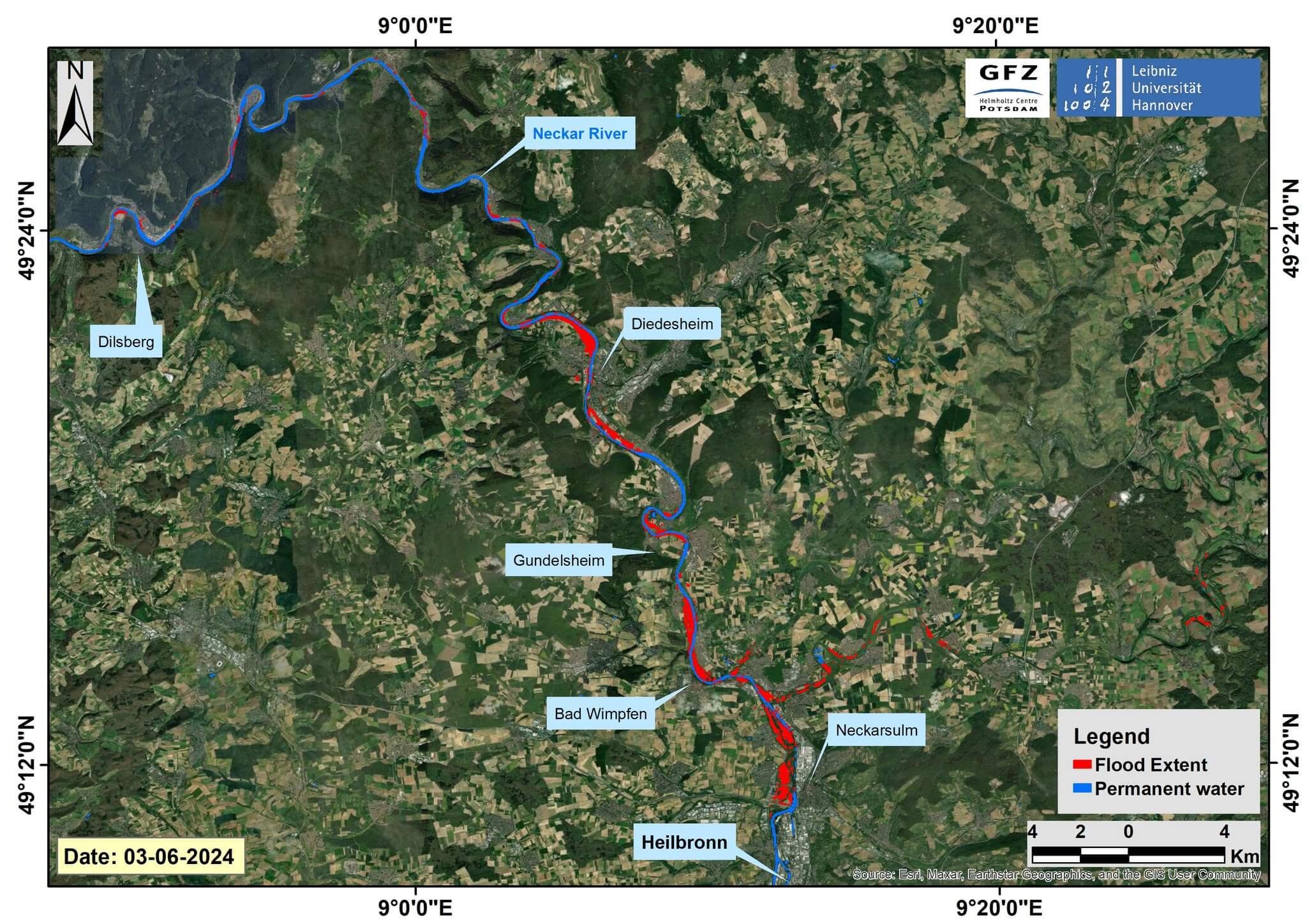Flooding Disrupts Traffic on the Upper Rhine

Extreme high water levels have shut down navigation on the Rhine in Bavaria and Baden-Wurttemburg, affecting traffic on the Upper Rhine as far as Switzerland.
Torrential rain has caused widespread flooding in the Rhine valley, and the Upper Rhine is currently closed to marine traffic near Maxau and Mannheim. The water levels are so high that there is not enough clearance under some of the river's bridge crossings to permit barges to pass. This has delayed inland traffic movements between the Lower Rhine and the upper reaches of the river. The shutdown at Maxau, a town near Karlsruhe on the river's eastern bank, is expected to last until Friday.
The flooding has claimed the lives of six people in Bavaria and Baden-Wurttemberg, including one first responder. Thousands more have been forced to evacuate, and 800 military personnel have deployed to assist local agencies with search and rescue, relief efforts and flood control. Waters have also risen rapidly on the Danube in Lower Bavaria, Austria and Hungary, reaching 30 feet in the city of Passau.

In comments Monday, German Chancellor Olaf Scholz drew a direct connection between a series of recent floods in Germany and climate change. Though a formal examination of causal factors has not been completed yet for this month's flooding, scientists previously concluded that the last serious flood in Germany - the record-setting Ahr Valley rainfall event in 2021, which killed 189 people - was up to nine times more likely to occur because of warming.
Navigation on the Rhine has been restricted by water levels multiple times since 2018, but primarily by drought. Extreme low water events in 2022 prompted a near-shutdown of traffic at the shallowest point in the Middle Rhine, the town of Kaub. Nearly every summer, recurring draft restrictions have reduced the capacity of barge traffic through the area for weeks at a stretch.
The Rhine River is central to Germany’s inland shipping sector. Major German corporations depend on the Rhine River to transport products such as grain, coal, minerals and oil products. Any disruptions to navigation in the river is a source of concern for many businesses, and for river transport operators. The recurrent droughts have even prompted some regional carriers to design a new hull form for their newbuilds, adapted to lower summertime water levels.
No comments:
Post a Comment